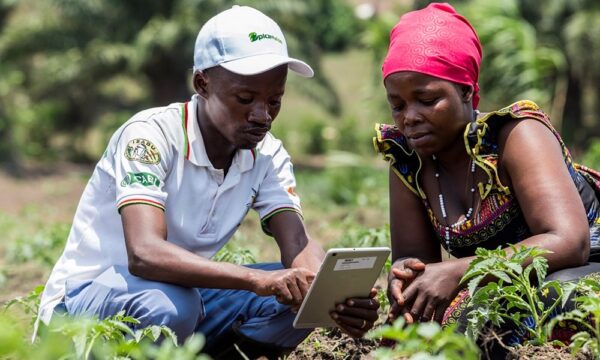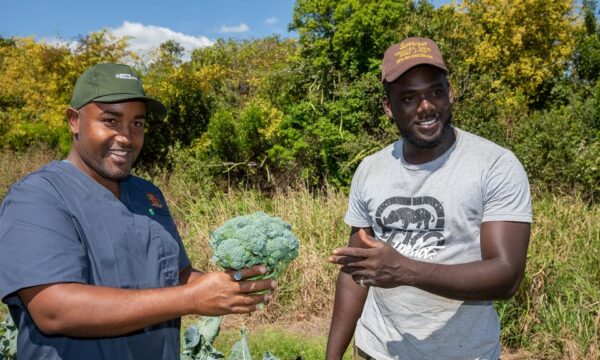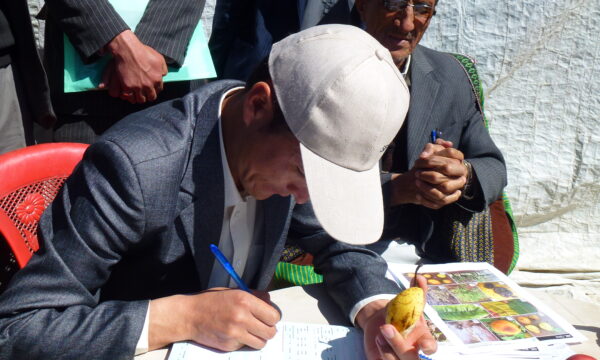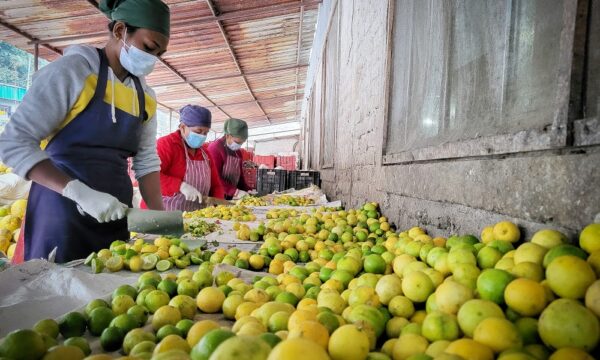Each year, top university representatives from across Africa gather at the RUFORUM conference to learn about new developments in education and exchange ideas for collaboration. This year’s event, held in Maputo, Mozambique, from 21 July – 25 July, was an opportunity for CABI to increase awareness of its knowledge and training resources, especially those made available for the first time through its Plantwise programme.
The Regional Universities Forum for Capacity Building in Agriculture (RUFORUM) is a consortium of 42 member universities in East, Central and Southern Africa. This year’s conference theme focused on celebrating the role of agricultural institutions in African development, as well as recognizing the 10th anniversary of the RUFORUM consortium. A multitude of agricultural stakeholders participated, including students, scholars, policy makers, entrepreneurs and farmers from local communities. The meeting was co-organized by the RUFORUM Secretariat, Mozambique Institute of Agricultural Research (IIAM), The Centre for Coordination of Agricultural Research and Development for Southern Africa (CCARDESA) the Government of Mozambique and Eduardo Mondlane University as the host institution.
Since 2013, CABI has partnered with RUFORUM to offer its member universities privileged access to key resources for agricultural education such as CAB Abstracts and the CABI Compendia. At a joint side event, CABI demonstrated that there is a much wider scope for collaboration. A total of 28 stakeholders attended the side event from RUFORUM member universities, African Union, Ghanaian Ministry of Education, Michigan State University, National Agricultural Research Organization (NARO)-Uganda, The Federal University of Ceará-Brazil and AFRISEM. They represented institutions from Mozambique, Zimbabwe, Malawi, Kenya, South Sudan, Uganda, Swaziland and Zambia. This event, titled ‘Building linkages between education and practical knowledge resources,’ explored new opportunities for universities to connect with the CABI-led Plantwise programme as a resource for training and targeted research.
Now working in over 30 countries – including 12 countries in Africa – Plantwise helps establish networks of plant clinics run by trained plant doctors and supported by a global knowledge bank. The goal: reduce crop losses for farmers. To further reach this goal, the same plant doctor training can be incorporated into curricula for students and agricultural extension staff for a practical, hands-on approach to crop protection. At the same time, university research and diagnostic centres are becoming vital for plant clinic backstopping, as well as exploring research questions drawn from plant clinic records.
In his opening remarks, Dr Washington Otieno, the Plantwise Regional Coordinator for Africa, described the Plantwise strategy and how it builds linkages across extension, research, academic institutions and regulatory agencies to solve biotic and abiotic plant health problems. He highlighted how Plantwise has shifted from being solely responsible for training of plant doctors to empowering national trainers from, inter alia, universities, agriculture ministries, research organizations to conduct plant doctor training. One such partnership already providing benefits to stakeholders across Uganda is the collaboration between Plantwise and Makerere University.
Dr Hebert Talwana, a lecturer at Makerere University, shared his institution’s experience and approach of introducing plant doctor training into the university’s agricultural curriculum. They targeted undergraduate students for the first sessions, with prospects of training existing agricultural extension personnel in the future. He highlighted how the Plantwise plant doctor training is aligning nicely with the university framework of outreach and training, ensuring ownership and sustainability in the long run.
Similar thoughts were shared by Prof John Kimenju, Dean of the Faculty of Agriculture at the University of Nairobi, who emphasized that universities would also provide a quality assurance system so standards are met and maintained through certification. This addressed questions from the audience about the need for both sustainability and quality assurance to guarantee success. Concluding the Plantwise workshop, Prof Samuel Gudu, Principal at Rongo University College, Kenya, thanked CABI for hosting and expressed his support for increased partnerships between CABI and RUFORUM universities.
Alongside this workshop, CABI also participated in the week-long exhibition where CABI’s Lourena Arone, Willis Ochilo and David Onyango took guests through the wide range of international development projects and publishing products offered by the organization. Willis Ochilo demonstrated the key features of the Plantwise knowledge bank which make it a unique resource for information on current and emerging crop pests.
Following this event, CABI will continue to deliver access to CAB Abstracts and Compendia to students in Africa who can benefit from its bibliographic life sciences database and encyclopaedic resources. It is also hoped that dialog will continue and partnerships will be fostered between CABI initiatives such as Plantwise and educators across the continent. One MSc student, Mable Mercy Mulanya from the University of Nairobi studying Plant Breeding, thanked CABI for enabling access to full text and up-to-date literature which has proved valuable in her research.
Related News & Blogs
Plant clinics showcased at Harvest Money Expo in Uganda to help empower the country’s young smallholder farmers
The CABI-led PlantwisePlus programme showcased its plant clinics at the Harvest Money Expo in Uganda to help empower the country’s young smallholder farmers to grow more and lose less to potentially devastating crop pests and diseases. The Harvest Mone…
22 March 2024




